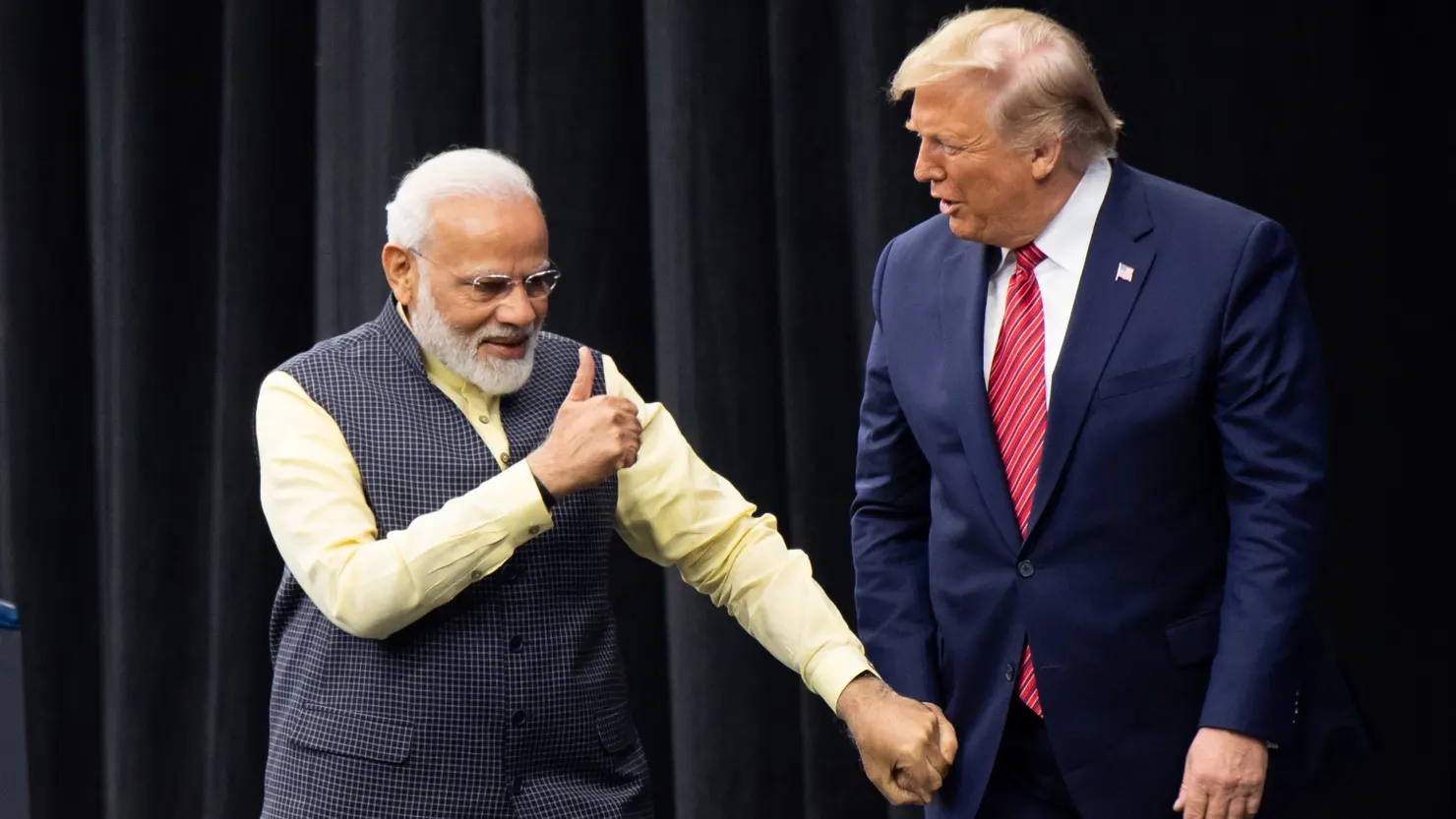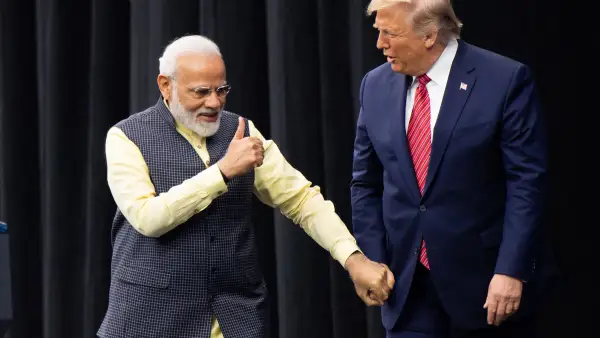India under pressure to seal trade deal with U.S. as deadline looms
Key Points
- A trade deal between the U.S. and Japan announced earlier has added to the urgency for New Delhi.
- Analysts say India has a few bargaining chips in its negotiation arsenal with the U.S.
- India is also seeking more trade deals with other countries to give it leverage, both at the negotiating table and in navigating global economic shocks.

US President Donald Trump and Indian Prime Minister Narendra Modi attend "Howdy, Modi!" at NRG Stadium in Houston, Texas, September 22, 2019.
Pressure on India to seal a trade deal with the U.S. has intensified this week, ahead of a fast-approaching Aug. 1 deadline, which will see tariffs increase to 26%.
A trade deal between the U.S. and Japan announced on Wednesday, which addressed sticking points on greater market access for American autos and agricultural products, has also added to the urgency for New Delhi.
Like Japan, India has resisted greater market access for American agricultural products to protect its local farmers, who form a sizable voting bloc. In its recent trade deal with the U.K., finalized on Thursday, India managed to safeguard its most sensitive agricultural sectors from tariff concessions.
Indeed, India's Commerce and Industry Minister Piyush Goyal acknowledged that the sector was sensitive to India in an interview with CNBC on Thursday.
"We are always very sensitive to the interests of our farmers, the interests of our [Micro, Small, and Medium Enterprises], and will ensure that our areas of concern are well protected," Goyal said.
The bilateral trade agreement between India and the U.K. "set a tone to all the Western powers" that New Delhi is ready to trade on its own terms, Sameep Shastri, vice chairman of the BRICS Chamber of Commerce and Industry, told CNBC.
However, as the window to seal a trade deal with the U.S. closes, analysts say Washington also has its reasons to finalize an agreement sooner rather than later.
"Strategically, the U.S. has little interest in alienating India. It sees India as a strong partner that can shape the Indo-Pacific landscape," Harsh V. Pant, Vice President of Studies and Foreign Policy at Observer Research Foundation, told CNBC.
